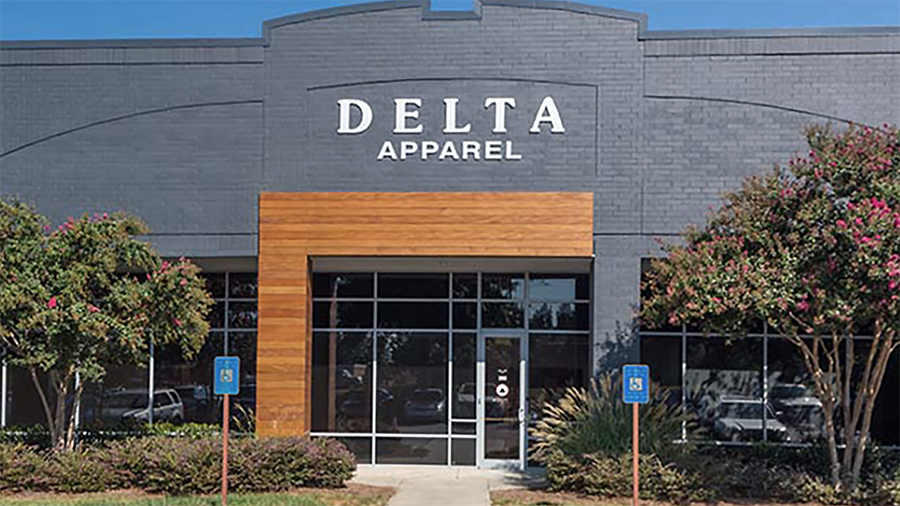Delta Apparel said in a regulatory filing that Matt Miller, president of Delta Group, the company’s largest segment, had submitted his resignation. Miller’s exit follows Delta’s announcement on May 31 that longtime Chairman and CEO Robert Humphreys will resign from his role with the company, effective June 29, at the request of Delta’s independent board directors.
According to the filing, Miller’s resignation was effective June 6.
On May 31, Delta Apparel also said it had appointed Tim Pruban, the founder of Chicago-based Focus Management Group, as chief restructuring officer. He is advising Delta Apparel’s Board on succession planning regarding Humphreys’ departure.
Delta has also seen two board members resign, including Timothy Brog, effective May 30, and David Whalen, effective May 31. Another board member, Alexander Taylor, resigned in mid-May.
In December 2023, Delta Apparel agreed to appoint Brog as a new independent director to its Board to avoid a proxy battle with Forager Capital Management, an Alabama-based hedge fund management firm. In mid-October, Forager Capital sent a letter to Delta Apparel, Inc., stating its intention to nominate four directors for election at Delta Apparel, Inc.’s 2024 annual shareholders meeting. The four candidates would have been Brog, David Berry, Matthew Dickman, and Susan Westphal.
Miller had been president of Delta Group, which includes Delta Activewear and DTG2Go, since April 25, 2022. Previously, he served as interim CFO at Ardmore Home Designs from June 2021 to April 2022.
Delta Apparel’s regulatory filing submitted on June 11 also noted that Justin Grow, the EVP and chief administrative officer, amended the effective date of his resignation to June 5. Grow previously submitted his resignation on May 3, with an effective date of July 2.
The filing also noted that Elkay Partners, NY, LLC had exercised its right to terminate its planned purchase and long-term leaseback of the company’s approximately 35-acre campus in Fayetteville, NC. The purchase price for the Fayetteville campus contained in the agreement was $23.5 million.
Delta has posted losses for seven straight quarters as elevated inventory levels at the mass channel and related destocking efforts have impacted its Delta Direct vertical blank tee platform.
In the fiscal second quarter ended March 30, Delta Apparel’s net loss expanded to $36.3 million, or $5.15 a share, from a loss of $7.0 million, or $1.00, in the same period a year ago. Adjusted to exclude non-recurring items related efforts, impairment charges, restructuring costs, and costs to curtail production, the loss in the latest quarter was $17.8 million, or $2.53.
Sales of its core activewear segment, Delta Group, fell 30.6 percent to $63.4 million. The segment’s operating loss was $22.4 million on a reported basis and $3.9 million, excluding non-recurring charges against an operating loss of $7.4 million a year ago.
Salt Life’s Group segment sales declined 18.0 percent in the second quarter to $15.5 million.
Delta has also indicated in its recent quarterly filing that as of its fiscal second quarter ended March 30, the company was not in compliance with its financial covenants contained in its revolving credit facility. The covenant requires Delta’s results to “improve at a rate faster than we experienced during the second quarter and at a faster rate than we expect to experience over the next 12 months.”
Delta said it has been, and continues to be, in communication with its lenders about its non-compliance and potential options to address covenant requirements over the next 12 months, although it offered no assurances that negotiations would prove successful. Delta said in the filing, “If the company is not able to address such concerns, it may seek relief under applicable bankruptcy laws.”
Delta has also indicated in recent filings that challenges securing credit from certain suppliers was challenging its ability to “purchase quantities of production inputs necessary to allow our manufacturing facilities to run at the levels required to meet our business plans.” Delta also plans to take an impairment charge related to its DTG2Go digital-print business during the third quarter, which ended July 2, as DTG2Go’s largest customer no longer intends to source production from the platform.
The changes came after Delta said last October that it had received an unsolicited offer to purchase the Salt Life business unit from an unnamed party, and its Board had engaged Baird as its financial advisor. Delta’s second-quarter SEC filing indicated that the company is continuing to explore a sale of Salt Life.
Image courtesy Delta Apparel
















